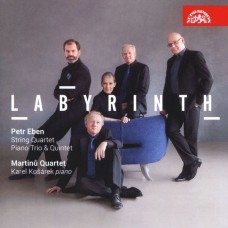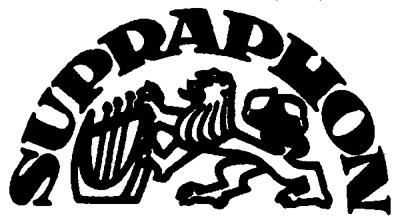彼得·埃本:迷宮 馬替奴四重奏 / Martinu Quartet / Petr Eben: Labyrinth
|
Petr Eben was one of the most distinguished Czech composers of the second half of the 20th century. His music gained recognition far beyond the Iron Curtain and his homeland. Best known for organ and sacred works, his chamber pieces have - unjustly - been somewhat overlooked. Eben's music reflects his fascinating life story. At the age of 16, he was deported to the Buchenwald concentration camp, where he got to know the thin line between life and death. His harrowing experiences there resulted in an emboldening of his Christian faith, approach to people and art alike. Eben's "programme" is most evident in the String Quartet (1981), written to commission for the Smetana Quartet and inspired by the allegorical work "The Labyrinth of the World and the Paradise of the Heart" by the famous 17th-century Czech philosopher, educator and theologian Jan Amos Komensky, in whom he saw a model for viewing this world: "not to be attached to it, to retain a critical view and distance, yet to dedicate one's strengths with the aim to make it better and attain its redemption". Both the Piano Quintet (1992) and the Piano Trio (1986) clearly reveal their creator - Eben the superlative pianist. In them, the composer did not strive to make the instruments chime, opting instead for juxtaposing the sounds of the piano and the strings. The renowned Martinu Quartet (whose releases include the highly acclaimed CD of Sergey Taneyev's complete quintets, SU 4176-2) and the pianist Karel Kosarek have undertaken Eben's quintet's premiere recording and the quartet's first modern-time recording since that made by the legendary Smetana Quartet.
|
編號 |
曲目 |
長度 |
作詞 |
作曲 |
演奏 |
樂團 |
演唱 |
指揮 |
試聽 |
|---|



